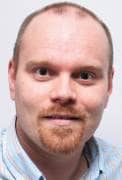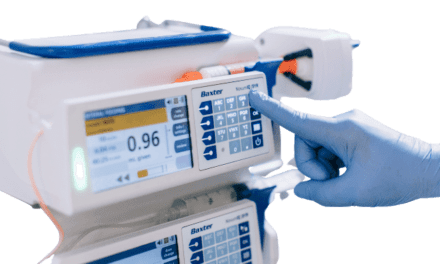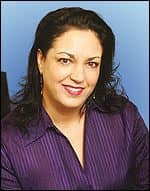 |
| John Backes |
Founded in the 1970s, Rigel Medical, located in Peterlee, England, became part of the Seaward Group in 1997. A privately owned company established in 1982, the Seaward Group focuses on the design and manufacture of electrical test equipment covering the medical, utility, industrial, and other sectors. Since joining Seward, Rigel has grown as a supplier of portable and innovative biomedical test equipment. 24×7 recently spoke to Rigel Brand Manager John Backes about the globalization of the biomedical industry, safety testing, and the growing importance of international standards.
24×7: What is the focus of your background?
Backes: My background has always been in electronics, from navigation and flight guidance systems, to the study of telecommunications and physics. My first job was in technical sales for a company producing temperature probes for the petrochemical, steel, offshore, and extrusion industries in Europe. From there, I moved to the Seaward Group in the UK, setting up and managing its European export network. For the past 5 years, I have been brand manager for Rigel Medical, where I ensure that our organization is able to meet the requirements of our customers in terms of quality, on-time delivery, and new product development.
I am also active as one of the UK representatives in the IEC 60601 committee (WG14), responsible for producing and maintaining international standards for the electrical safety of medical electronic devices.
24×7: Rigel is based out of the UK. What is its relationship with its US customers?
Backes: Being part of the Seaward group, Rigel Medical serves its customers through our group office in Tampa, Fla. Our network of dealers are managed and supported from our US office.
24×7: What is Rigel best known for in the industry?
Backes: Rigel is most often associated with biomedical safety analyzers; however, our product offering is rapidly expanding with a range of functional testers and simulators. Although we accept that our brand awareness is still growing in the United States, we want our customers to know that we are committed to the US market.
24×7: How has Rigel been working to increase its exposure?
Backes: Through a worldwide network of distributors, local and international trade shows, advertising, and press releases.
24×7: What are some of Rigel’s lesser-known innovations that serve biomeds?
Backes: We offer biomedical function testers and a calibration-verification instrument for electrical safety analyzers.
24×7: How do you serve all of your customers from around the globe?
Backes: Our aim is to be able to provide the best possible service to our customers and to be able to offer them solutions that respect their language, culture, local standards, and routes to market.
24×7: How is the biomedical industry in general becoming more global?
Backes: With the global life expectancy and quality of life increasing each decade, the health care sector should be becoming accessible to more people. This can only lead to the globalization of health care, medical supplies, equipment manufacturers, and service providers. With that comes a greater need for globally recognized standards, of which the IEC 60601 is currently the best known in the industry.
24×7: What are the differences between the biomed industry in the UK versus the US?
Backes: In principle, both markets are very similar. Biomeds in both countries have a respected identity—that of highly educated engineers, maintaining and managing medical equipment in hospitals and clinics. Whether employed directly by hospitals, medical equipment manufacturers, or third parties, they are committed to the biomed sector. At present, both the UK and the US have their own ways of complying with local or national requirements—through their individual local standards and guidelines. It is expected that this will align in the near future with the recently published international standard for routine safety testing of medical devices, the IEC 62353. Both markets are also seeing a greater need for traceability and, as a result, are moving more toward automated procedures and data storage.
24×7: What can our readers expect from Rigel in the near future?
Backes: If we bring out a “me too” product, we have failed in our job. We will continue with a clear focus on portable biomedical test equipment with the aim of offering products that can be used both in the workshop and in the field. This means products that are not tied into a single software platform, or ones requiring a PC to operate, but rather handheld solutions for everyday challenges.
24×7: Rigel produces a few electrical safety devices and accessories. Is electrical safety an overlooked area of biomedical testing?
Backes: Yes and no. A vast majority of people test to a type test standard, local standards or guidelines, the manufacturer’s recommendation, or individual risk assessment. More and more, efforts are being put in place to ensure the alignment of local, national, and international standards in order to rationalize the different approaches (or lack of approach).
Electrical safety testing is part of our duty to provide a safe environment for patients, hospital staff, and visitors. It is considered solid evidence against litigation. By giving thought and attention to electrical safety, and by using internationally accepted procedures, everyone associated with testing procedures will benefit.
24×7: How does Rigel find inspiration for its products? Do you have relationships with facilities using your equipment?
Backes: We have a close relationship with the biomed sector, our clients, and our employees. All play a vital part in the development of new product specifications. No product serves every one of our customers’ needs; therefore, we focus on a specific sector and end user requirements, rather than on competitor products. This is most evident in our range of handheld test equipment with built-in data storage, which is unique in the marketplace.
Stephen Noonoo is associate editor of 24×7. Contact him at .





